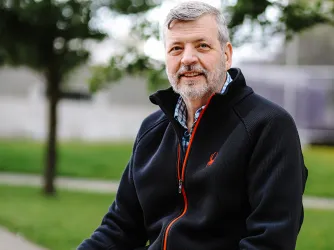Table of Contents
University of Virginia Officially Recognizes Conservative Group
Conservative students at the University of Virginia (UVA) aspired to form the Burke Society, an organization dedicated to studying and advancing conservative thought at their university. They filed an online application for Contracted Independent Organization (CIO) status with the university to gain access to university facilities and funding. In early January the group received a rejection letter, purportedly because the organization's constitution lacked a clear purpose and a non-discrimination policy. The group revised its constitution accordingly and resubmitted it per UVA protocol.
After the application apparently got lost in cyberspace, Burke Society founders Luke Mancini and Rick Eberstadt submitted a hard copy of their constitution to Catherine Tobin, the student government's Vice President for Organizations, on January 22. Later that evening Tobin left a message on Mancini's cell phone saying that there were concerns with the group's requirement that members adhere to the conservative principles endorsed by the organization. That evening, the Student Council voted to deny recognition to the Burke Society on the grounds that the "group restricts membership to only those that have conservative values" and that this requirement "does not comply with UVA policy."
The next day Mancini, Eberstadt and fellow Burke Society member Anne Bowie met with Tobin and Chris Husser, Assistant Director for Student Involvement. Tobin and Husser both confirmed the rejection on the grounds stated by the Student Council and added that the requirement that all new members be approved by two-thirds of the current membership was also problematic. The Burke Society opted to appeal the decision to the Student Council, and a hearing was set for Tuesday, January 29, at 7:00 pm.
Mancini and Eberstadt contacted FIRE, and FIRE wrote to Tobin on January 29 explaining that binding Supreme Court precedent affirmed the First Amendment right of student organizations to freedom of association, which includes the right to exclude individuals hostile to the group's mission. FIRE wrote:
Denying a political or ideological student organization the right to associate with other students who share the group's beliefs violates the freedom of association to which all UVA students are entitled by law. Any organization at UVA is entitled to the full protections of the First Amendment, including the right to exclude students who disagree with the purpose and mission of the organization.
...
All student organizations—especially those based upon political beliefs—have an interest in preserving their specific ideological character. UVA's Students for a Free Tibet, for example, should be able to deny membership to students who support China's occupation of Tibet, and the Queer & Allied Activism group should likewise have the right to exclude homophobes. This necessity is equally relevant in the case of the Burke Society, since its stated purpose is "to affirm certain eternal truths" listed in Article II of its proposed constitution. The Burke Society's members' constitutional rights require the university to allow the group to deny membership to students who do not support the organization's principles.
At the meeting on Tuesday night, Mancini and the other Burke Society members waited outside while the council deliberated. Mancini later found out from Cavalier Daily reporter Marie Cohen what transpired inside. After the meeting started Tobin announced that she had received FIRE's letter and that the university legal counsel and Associate Dean of Students Bill Ashby had advised the Student Council to approve the Burke Society's CIO status. After discussion about the nature of the group's ideological discrimination and whether other organizations engaged in similar practices, Tobin reiterated that the Student Council had been advised by the administration to approve the organization. The Student Council voted unanimously to approve the Burke Society.
This was the right decision on a matter that UVA is not unfamiliar with. Over a decade ago, UVA was the defendant in the famous Supreme Court case Rosenberger v. Rector and Visitors of the University of Virginia (1995), where the Court held that UVA violated the free speech rights of student journalists when the university refused to fund a student religious publication. In that case the Court explicated an important constitutional principle—viewpoint neutrality—that is integral to the liberty of student groups to define their own character and mission. Public universities generally may not discriminate against a student organization in granting official status or distributing funding merely because of the group's viewpoint. The Court affirmed this principle five years later in Board of Regents of the University of Wisconsin System v. Southworth (2000). Both decisions are printed in full and explained in FIRE's Guide to Student Fees, Funding, and Legal Equality on Campus.
Recent Articles
Get the latest free speech news and analysis from FIRE.

FIRE's 2025 impact in court, on campus, and in our culture

The trouble with banning Fizz

VICTORY: Court vindicates professor investigated for parodying university’s ‘land acknowledgment’ on syllabus
